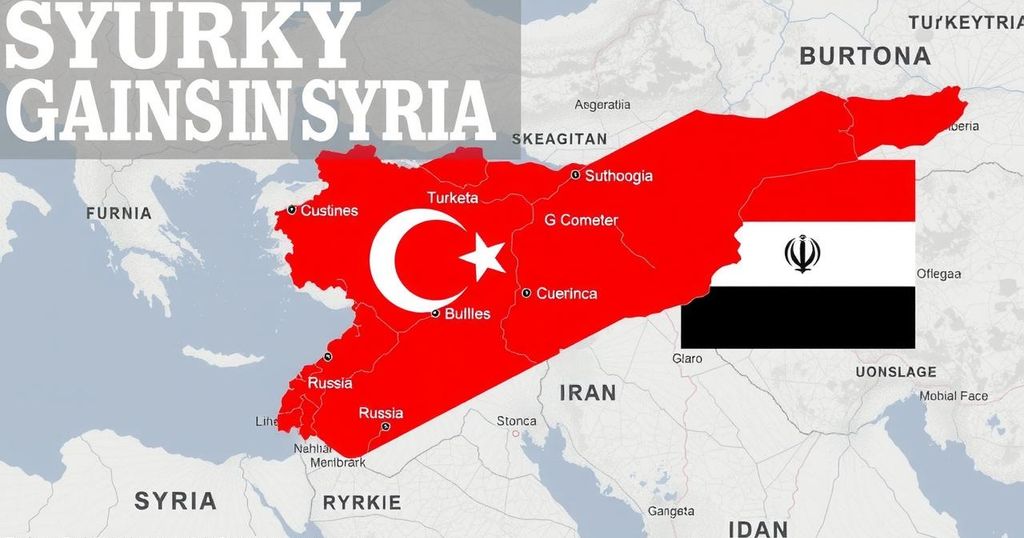Turkey Emerges Victorious as Assad is Ousted in Syrian Conflict
Recent upheavals in Syria have led to the ousting of Assad, as HTS gained control of Damascus. Analysts view Turkey as the main winner, while Iran and Russia suffered losses. Future negotiations between HTS and Turkey will be critical, especially regarding Kurdish issues.
The civil war in Syria, which erupted in 2011, evolved significantly following the recent overthrow of President Bashar al-Assad. The armed group Hayat Tahrir al-Sham (HTS) secured control of Damascus, prompting Assad to flee to Russia, as reported by state media. Analysts from France who discussed these developments emphasized that Turkey emerged as the primary beneficiary, while Iran and Russia are viewed as the significant losers. However, the future course of negotiations between HTS and Turkey, particularly concerning Kurdish issues, is expected to be pivotal in shaping the ensuing landscape.
Since the onset of the Syrian civil war, the geopolitical dynamics in the region have fluctuated dramatically. The eventual breakdown of the Assad regime marks a critical juncture in this protracted conflict. The involvement of various factions, notably HTS, has had profound implications for regional powers such as Turkey, Iran, and Russia. Understanding the shifts in power and influence is essential to comprehending the future trajectory of Syrian politics and its implications for broader Middle Eastern stability.
In summary, the recent developments in Syria following the departure of President Assad highlight a significant shift in regional power dynamics. Turkey’s status as a key victor, against the backdrop of Iran and Russia’s declining influence, underscores the complexities of the Syrian conflict. The outcome of future negotiations, especially regarding Kurdish matters, will be crucial in determining the stability and political landscape of Syria going forward.
Original Source: www.voanews.com




Post Comment